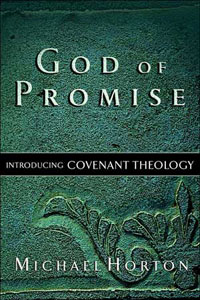The very commandment that promised life proved to be death to me.
I’ve been continuing my readings through Romans, and got to chapter 7 today. And I was struck by a few verses in particular. I’ve always found this passage (as well as much else of Romans) somewhat hard to grasp (and that’s putting it lightly). But here, as perhaps everywhere else, Paul is really trying to make a point. Imagine that. He’s actually trying to say something, uh… important… like blow our mind-kind of important. He’s mounting an argument (like elsewhere throughout this mighty book of the Bible) and we’re entirely missing out on the amazing joy of understanding it if and when we don’t see it.
Christ tells us to “ask, seek, knock”. What’s more, many of us don’t even believe that this amazing joy in the Gospel and knowledge of Christ is there to begin with. Or, if it is, that it’s not very great a deal… certainly not greater than the sin being preferred. Our only hope is to ask the Holy Spirit to break these chains of sin and these bonds of blindness.
Now, Paul is saying more here than I can comprehend. So I’ll just touch on what struck me.
“But sin, seizing an opportunity through the commandment, produced in me all kinds of covetousness. For apart from the law, sin lies dead. I was once alive apart from the law, but when the commandment came, sin came alive and I died. The very commandment that promised life proved to be death to me. (Rom 7.8-10)
I don’t know, but that last phrase really stands out.
The very commandment that promised life proved to be death to me. What does that mean? How do we read that? Does that even make sense to us? Can we make any sense of it whatsoever? I know it’s hard for me… Even now, the clarity I had half-an-hour ago is slipping so I need to finish up this post.
But what I think Paul is saying is that there is this thing called the law (i.e. commandment[s]). And he tells us that “the Law is holy, and the commandment is holy and righteous and good” (vs.12). And yet it brought him death. Even thought it “promised life” (“if you do this you shall live”) it “proved to be death to me.”
And so here we have it: I thought I was supposed to do good stuff… Aren’t we supposed to attempt to be as good as we can? Aren’t we supposed to strive for morality? And aren’t we to be good in order to go to heaven? I mean, don’t good people go to heaven.
And here’s the solid answer: All attempts to gain life and righteousness and eternity through law keeping, or morality, or any other kind of good work will only bring death. Why? Because people are sinners, and the law is perfect. The law is good, and my good works aren’t. Even though they might seem good, they’re not good enough, because the law is perfect. And I’m not. This is why all men are lost and helpless. We are all hopeless to improve ourselves and become good enough. We cannot save ourselves. End of story.
Ok. But the main point I wanted to touch upon regards us believers who already know and believe all this and yet still really get hung up on the law quite badly. Those who have believed in Jesus Christ as their savior, who have trusted him for their salvation, still seem perennially susceptible to return back to “law-keeping” as a way of “maintaining” their salvation. Paul tells us right here that the “very commandment that promised life proved to be death to me. It already promised life to him once, and it didn’t work! It brought him death! How is it that we will go back again and again to the law (i.e. commandments) thinking they still promises life to us, and that if we only obey it (keep the law now in our Christian life), only then will we indeed have life. The fact is, we wont obey and we can’t save ourselves — Ever, either before believing or after.
Now, if we’d never sinned yet, and wanted to know what we had to do to inherit eternal life, than of course, we’d be on the right track. For example, we have the account of a lawyer coming to Jesus with that question.
““Teacher, what shall I do to inherit eternal life?” He [Jesus] said to him, “What is written in the Law? How do you read it?” And he answered, “You shall love the Lord your God with all your heart and with all your soul and with all your strength and with all your mind, and your neighbor as yourself.” And he said to him, “You have answered correctly; do this, and you will live.” (Luke 10.25r-28)
Do this and you will live. The problem is, we can’t do that. When Christ’s disciples were starting to get a grasp of this terrible truth they asked “Who then can be saved” (Matt 19.25). Christ responded;
“With man this is impossible, but with God all things are possible.” (Matt 19.26)
Paul has already told us in Romans 3,
“Now we know that whatever the law says it speaks to those who are under the law, so that every mouth may be stopped, and the whole world may be held accountable to God. For by works of the law no human being will be justified in his sight, since through the law comes knowledge of sin.” (vs. 19-20)
So I ask, why do we continually go back to the law? In another letter Paul tells us that “the letter kills, but the Spirit gives life” (2nd Cor 3.6). So why do want to return the letter in an attempt to save ourselves/justify ourselves/make ourselves good enough or acceptable. What foolishness! Really, what lawlessness! For our sinful attempts will always fall flat, and we’ll ever and again be proved law-breakers and utter failures.
So how is it then that, even as Christians, we are drawn back to the law? Why are we attracted to the thought of “I can do it” with the expectation being “then I shall live”?
The answer is found in creation: God made us that way.
God created us “wired for Law” as Michael Horton puts us. And contrarily, as Martin Luther said, the gospel comes from “outside of” ourselves. So the law comes natural to us – according to our nature. The gospel comes to us unnaturally — against our nature. The law makes sense. We get the law. The gospel doesn’t make sense (even sometimes to us Christians who have heard it so many times). The gospel always comes across as foolish to human minds. “For the foolishness of God is wiser than man’s wisdom” (1 Cor 1.25). And why does it seem foolish? Because it says “Stop trying to save yourselves, and believe and trust in Christ alone to save you.” By grace alone, through faith alone, in Christ alone.
And now to tie all this back in with Romans 7. Not only are we to stop trying to save ourselves through the law, but Paul now powerfully tells us that we have died to the law. Died to the law. Ok again. What at all does he mean by this? Please someone tell me. How can I possibly understand this? Died to the law? That doesn’t even make sense.
Let me tell you, dear fellow Christians; in as much as we don’t understand what Paul is saying here, I believe we won’t grasp the power and joy that are ours in the Gospel. What mighty doctrines lie before our eyes and yet we see them not. What wellsprings of hope and gladness in God’s sure salvation of our souls, yet we esteem them not. What a mighty fount from which to be strengthened by God’s grace, and yet we look the other way. What I bedrock to be grounded confidently in Christ’s finished work of redemption on our behalf, if only we’d looked unto the savior.
Thy works, not mine, O Christ, speak gladness to this heart;
They tell me all is done; they bid my fear depart.
– (Horatius Bonar)
For indeed, “It is finished” As our great God and Savior Jesus Christ has declared.
So how does this Romans passage help us see that? Well, we have “died to the law.”
“Likewise, my brothers, you also have died to the law through the body of Christ, so that you may belong to another, to him who has been raised from the dead, in order that we may bear fruit for God. For while we were living in the flesh, our sinful passions, aroused by the law, were at work in our members to bear fruit for death. But now we are released from the law, having died to that which held us captive, so that we serve in the new way of the Spirit and not in the old way of the written code.” (Rom 7.4-6)
So, the law brought about death in us… (and likewise any attempts to bring about life through following the law are hopeless). But now we are told we have “died to the law”. So we can’t even try to save ourselves by it if we wanted to! We’re dead… We’re really and totally dead to it. The law has no more jurisdiction over us. It can’t save us anymore… Any chance of being saved by works of the law is over. Game over! Wait, who won? Let’s see… And here’s the best news of all. In this whole exchange we find many things going on, but the greatest of these things is this: WE’VE ALREADY BEEN SAVED! Passed tense! That’s why we’re released from the law. That’s why it no longer has jurisdiction over us. That’s why it can’t save us anymore, Christ already has. That’s why it’s utter folly to look to it in order to save our selves. We’ve already been saved — and that by and in Jesus Christ and his work of redemption. And how did this happen? Paul says, “you also have died to the law through the body of Christ. So when Christ died on the cross, it happened. “Why?”, you might ask. Is it so that we can now go on and live selfish, lawless lives? No, quite the contrary. Paul says, “[S]o that you may belong to another, to him who has been raised from the dead, in order that we may bear fruit for God.”
Fruit for God. So that’s the whole point; that we might actually do good works. Since before, in our attempts to save ourselves by good works, they all proved futile and useless because they would never be good enough. But now that Christ has done his great work of redemption (which is good enough) we are free from condemnation (fits nicely into chapter 8 which I look forward to now) to do good works that we never could have done before.
So, in conclusion. We were under law at one time… We couldn’t save ourselves then. Being indeed slaves to sin, we were bound to sin, the law and death. But now, in the perfect and finished work of Christ we’ve died to the law and sin and death — which means we’ve become alive to Christ and have eternal life. This means it’s still impossible to save ourselves through law. But now we don’t have to… We don’t and shouldn’t even be worried about it… The fact that we are, and do worry about it, shows that we don’t entirely believe the gospel nor trust God who has given us his precious promises in Jesus Christ.
The letter kills! Why don’t we get that? That’s why it’s such good news that we’ve died to the letter of the law. For now there is “no condemnation for those who are in Christ Jesus.” Oh how that ought always to speak gladness to our hearts.
And since we have died to the law, let us never, ever, attempt to return to that which Christ has set us free, as if we could attain righteousness before him by our own efforts of godliness. May we never despise his perfect work for us, playing in down, overlooking it, minimizing it, accepting it only half-hardheartedly — all-the-while thinking our own efforts are more interesting, important or, if nothing else, the determining factor in our salvation. If we feel or believe that we must wait until our sanctification is complete before we can glory in the cross of Christ, we are engaging in flat-out idolatry and unbelief. Rather we are called to “glory in Christ Jesus and and put no confidence in the flesh” (Phil 3.3)
“[N]ow we are released from the law, having died to that which held us captive, so that we serve in the new way of the Spirit and not in the old way of the written code.” In Christ we have been made alive in the Spirit and we will live different, sanctified, and fruit-bearing lives. That’s a fact… And it’s because of Christ’s work, not our own.
We’ve died to the law, guys. And that’s great news. Now we get to live before God, alive in Christ Jesus.
Now having believed Him who has made the promises, let us not grow weak in the faith. Though our bodies be as good as dead, let us glorify God in them, and rejoice in the hope of eternal life. For as Spurgeon said, it is “all of grace.” Lest any man should boast, may to God alone be all the glory now and forever more. Amen.
Read Full Post »








 I’ve been reading through Michael Horton’s
I’ve been reading through Michael Horton’s  I’ve started reading Dennis E. Johnson’s ‘
I’ve started reading Dennis E. Johnson’s ‘

